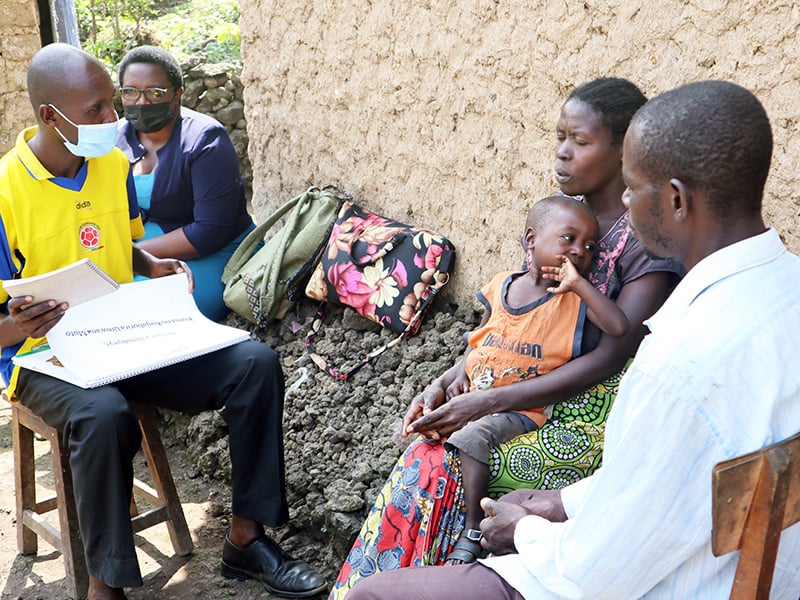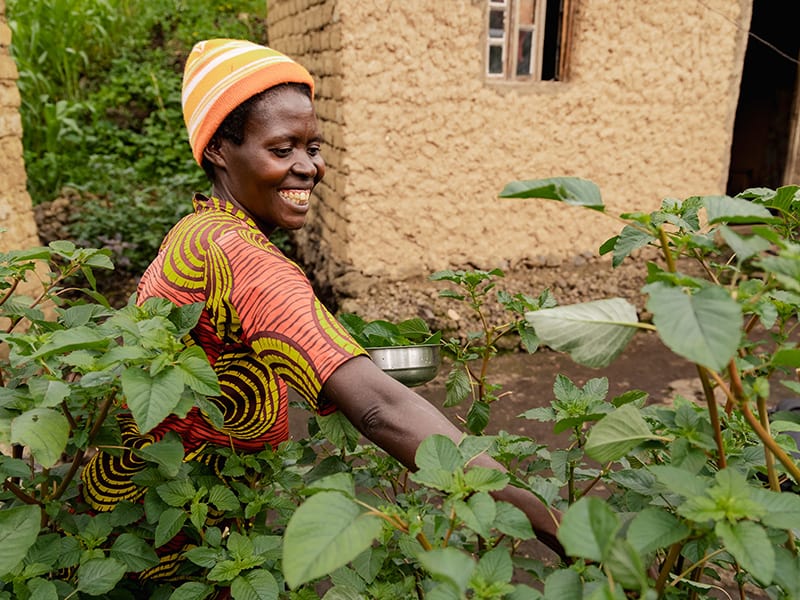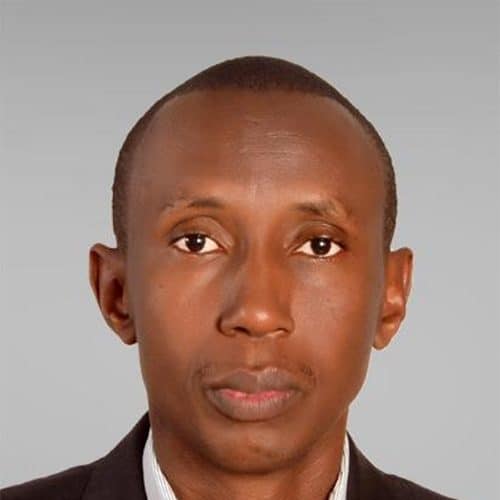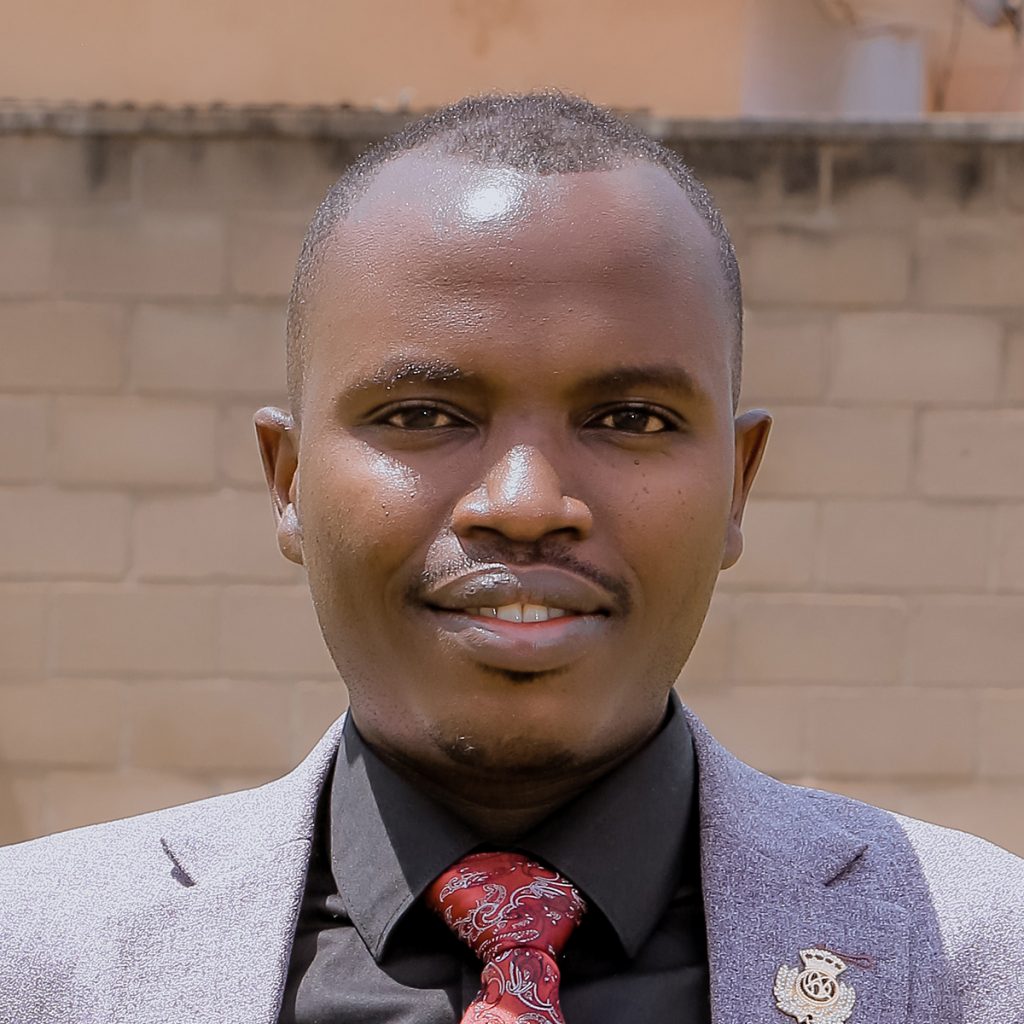Posts Tagged ‘Nutrition’
How Climate Change is Impacting Health and Nutrition in Rwanda
Poor communities are often on the frontlines of battling climate change. Many depend on climate-related industries like farming for food and livelihoods, and when climate disasters strike — whether flooding, drought, violent storms or extreme temperatures — there’s little economic margin to rebuild and adapt.
While the economic effects of climate instability are severe among poor communities, the negative repercussions don’t stop there. Climate change and adverse weather events also have a cascading, detrimental impact on health as communities experiencing poverty are at greater risk of disease, injuries and hunger.
The Struggle to Provide
We’ve seen the impacts of climate change on health first-hand in places like Bambiro village in Rwanda, where rising temperatures, extended dry seasons and heavier, less predictable rainy seasons have taken their toll on couples like Epiphanie and Jeremy.
As the water sources they had historically relied on shrank and became dirtier with each dry season, the farming couple could no longer earn a living by growing and selling crops as their elders had. In order to get by and afford food for their children, Epiphanie and Jeremy picked up odd jobs. They washed clothes and made mud bricks to buy potatoes, cornmeal and beans.
Although they wished to provide better, more diverse foods for their children, it seemed impossible. Animal proteins like eggs, fish, meat or milk were too expensive. In fact, when Jeremy was first asked whether he could buy these for his family, he laughed, saying, “I guess you are joking! Where can we get money to buy animal sources of food? Those are reserved for rich people.”
Sadly, when Epiphanie was pregnant with their third child, she noticed that her second born, Aphrodis, was weak. He was often ill and could not stand on his feet at age three. He was suffering from malnutrition.
The Help of a Neighbor
Epiphanie and Jeremy are not the only ones facing challenging circumstances like these. About 80% of the global population who are most at risk of hunger due to climate change are farming families living in Sub-Saharan Africa, South Asia and Southeast Asia.
Yet, even as they are not alone in the challenges they face, they’re also not alone in finding solutions.
In collaboration with UNICEF and The Rwandan national government, World Relief Rwanda connected Jeremy and Epiphanie to a neighbor, Jean Claude, who had faced similar circumstances.

Jean Claude had been selected and trained as a peer supporter through the Abarinzi B’imikurire Myiza (ABM), or “The Guardians of Good Growth,” project. ABM equips community and church leaders with knowledge and tools to help improve maternal, infant and child nutrition in Rwanda through peer-to-peer learning.
As part of the program, Jean Claude received training in food selection and preparation, child feeding practices, the importance of father involvement in child health and nutrition and household hygiene and sanitation.
Equipped with this knowledge, Jean Claude visited Epiphanie and Jeremy frequently to share what he had learned. He helped them plant and tend a kitchen garden capable of growing nutritious food with little maintenance and water. He also provided coaching on healthy practices for feeding a growing family. Within four months, Epiphanie and Jeremy had a garden full of mature, leafy green vegetables!
They were especially amazed that the water from their hand washing could sustain the garden in the dry season, and that the crops would endure even heavy rains.

Jean Claude also influenced Jeremy to change the way he spent the money he earned from odd jobs. “I used to spend money buying beer, sugar canes and ignore purchasing nutritious food for my family,” Jeremy explained. “After being trained on kitchen gardening, food preparation and food selection, I changed my priorities. I no longer buy alcohol in replacement of food. I try my best to provide different kinds of food varieties to my family on a daily basis. My wife and children need it, as well as me.”
Creating Climate Resilience Together
Now, Epiphanie and Jeremy are seeing the health of their family transformed in spite of the impacts of climate change. With more vegetables, protein and nutrients in his diet, Aphrodis has grown stronger and now runs around playing with other children.
Together, we have reached approximately 1,456 children like Aphrodis through ABM. Among them, we have seen a 20.9% increase in children ages 6 to 23 months consuming more frequent and diverse meals. We have also seen significant improvements in hygiene practices — among those who received peer-to-peer coaching from volunteers like Jean Claude, over 95% say they wash their hands at key moments, as compared to only 45% in the control group.
While Epiphanie and Jeremy’s lives are still impacted by a changing climate, they are raising healthy children and coping well, surrounded by a community of support thanks to Jean Claude, World Relief and generous people like you.
Read more about the impacts of climate change on poorer communities and how World Relief is responding.

James Munanura is the Senior Manager for Health and Social Protection at World Relief Rwanda. With a research background at the University of Rwanda and Makerere University in Uganda, he provides leadership and technical support to nutrition and health related projects. He assisted with the development and direct management of the peer-to-peer Abarinzi B’imikurire Myiza project.

Jean Paul Niyitanga is the Communications and Operations Coordinator at World Relief Rwanda for the USAID-supported SCOPE Project. With a background in Journalism and Communications and a passion for serving the vulnerable, he began working at World Relief Rwanda in 2021. He has also served as a Communications Coordinator for UN-funded projects, including the Acceleration of Integrated Social Protection Interventions in Rwanda (AISPR) project and Maternal Infant and Young Child Nutrition (MIYCN) project.

Emily Kankindi is the Communications and Documentation Unit Coordinator at World Relief Rwanda and is also serving as acting Program Officer for Burundi, Rwanda and Kenya. She started with World Relief in 2005 and has been growing through different roles while pursuing a career in creative communications. Driven by a mission to serve the most vulnerable, Emily has a passion for telling stories of impact and using all forms of communication to inspire others to care for and serve those in need. Her educational background is in marketing and travel operations.
COVID and the Issues: Food Security & Nutrition
Last month, Oxfam projected that the number of people experiencing crisis-level hunger could reach 270 million in 2020 as a result of the coronavirus pandemic – an increase of over 80%.
The number is shocking.
Today, in the fifth of our six-week series, COVID and the Issues, we’re talking with Prava Chhetri and Rafael Flores, World Relief’s Technical Advisors for Food Security & Nutrition.
They will share about this concerning projection, as well as how COVID is impacting our nutrition work on the ground.
In the discussion that follows, Prava & Rafael give a brief overview of our food security and nutrition programs and discuss how COVID-19 is impacting global food production and access, as well as the nutritional consequences of this change.
They also open up about how World Relief’s programs are adapting in the face of this crisis, ensuring we do all we can to prevent the next major global famine.

Francesca Albano currently serves as Director of Branded Content at World Relief. With a background in Cultural Anthropology and a graduate degree in Strategic Marketing Communications, she connects her interests in societal studies and global cultures with her training in brand strategy and storytelling. Francesca is especially passionate about grassroots community development and the treatment and advancement of women and girls around the world.
World Relief in Burundi: Maternal & Child Health

In Burundi, approximately 58 percent of children under the age of 5 suffer from chronic malnutrition. Malnutrition is associated with serious medical issues later in life as well as lower education attainment, lower earnings and more prevalent violence. It is a result of poor nutritional practices, limited access to food, minimal dietary diversity and chronic illness. Because 80 percent of Burundians live on less than $1.25 per day and have limited access to the most basic financial services, poverty compounds these vulnerabilities and contributes to a cycle of malnutrition in households.
World Relief is empowering the local church to serve the most vulnerable in Burundi and meet the holistic physical, spiritual and relational needs that exist. World Relief provides long-term training and supervision of staff and government officials, who in turn train Health Workers and mothers to promote better health practices in the community through behavioral transformation. Concurrently, World Relief works with the Ministry of Agriculture to train Community Health Workers on the operation and development of small gardens for women to grow food and improve household nutrition and dietary diversity. World Relief also works in partnership with church network Dutabarane to provide crucial financial instruments to the poor through Village Savings and Loans
Associations.

Marasmus is a form of severe malnutrition caused by a deficiency in calories and energy.Félicité Havyarimana, a young woman from the central province of Gitega, had witnessed the effects of the disease in the life of her son, Alfred, ever since he was one year old. She said, “I was sad and desperate, not knowing what to do. In my despair, I turned to traditional healers, convinced that someone had cast a curse on my child.”
When a volunteer from World Relief’s Child Survival Program visited Félicité and examined her son, she explained that Alfred was suffering from malnutrition and that it could be cured. “I didn’t believe her, of course,” said Félicité. “Nevertheless, since nothing had worked so far, I started to follow her advice on health and nutrition, even if I wasn’t really convinced”.
A month later, Alfred began gaining weight and his health began improving. Encouraged, Félicité began participating in World Relief’s cooking workshops, where she learned about the components and preparation of well-balanced meals. “The lessons were really helpful to my children, especially to Alfred who was totally cured and went back to his normal weight,” said Félicité.
Almost three years old, Alfred is now a healthy child who, like many of his peers in the province, has benefited from World Relief’s Maternal & Child Health program. Félicité said that the program opened her eyes to the mistakes she did not know she was making when it came to the nutrition and health of her children. “Now,” she said, “I try as much as possible to keep them on a healthy and well-balanced diet, and I take them to the hospital to see a doctor at the first sign of illness, instead of seeking advice from traditional healers.”
At the root of the program is the long-term goal of Integral transformation of not only behavior, but beliefs, values and attitudes that bring Burundians to a place where they can experience the kind of life Jesus came to bring – life to the full (John 10:10).




